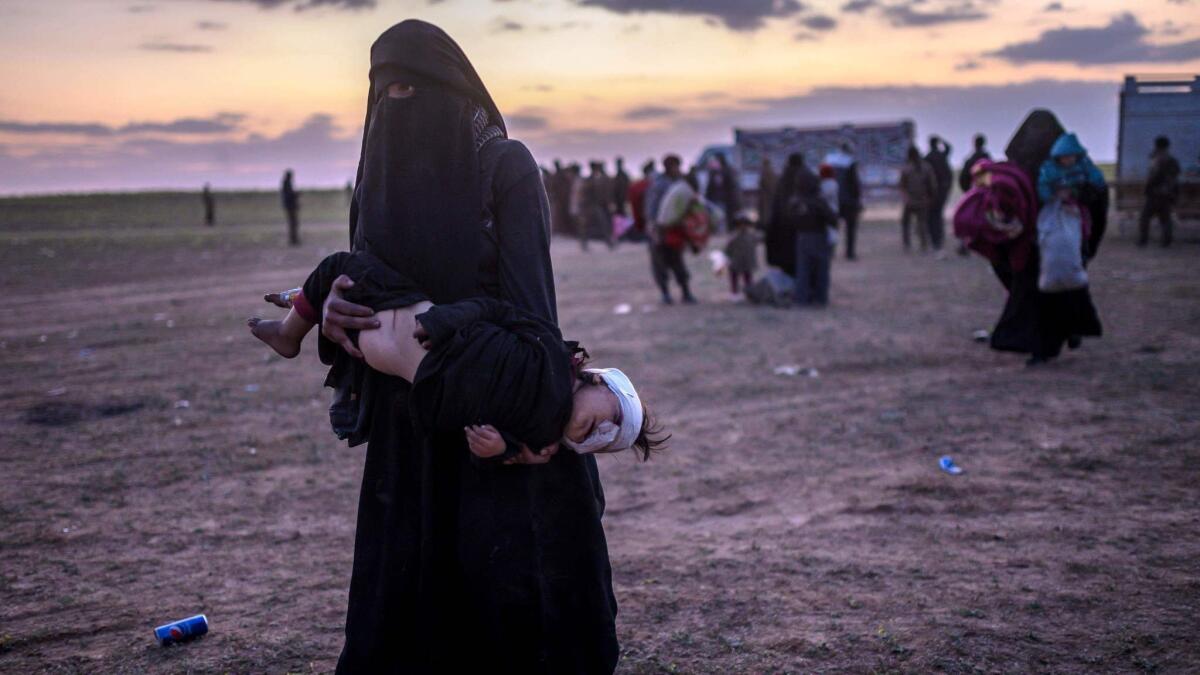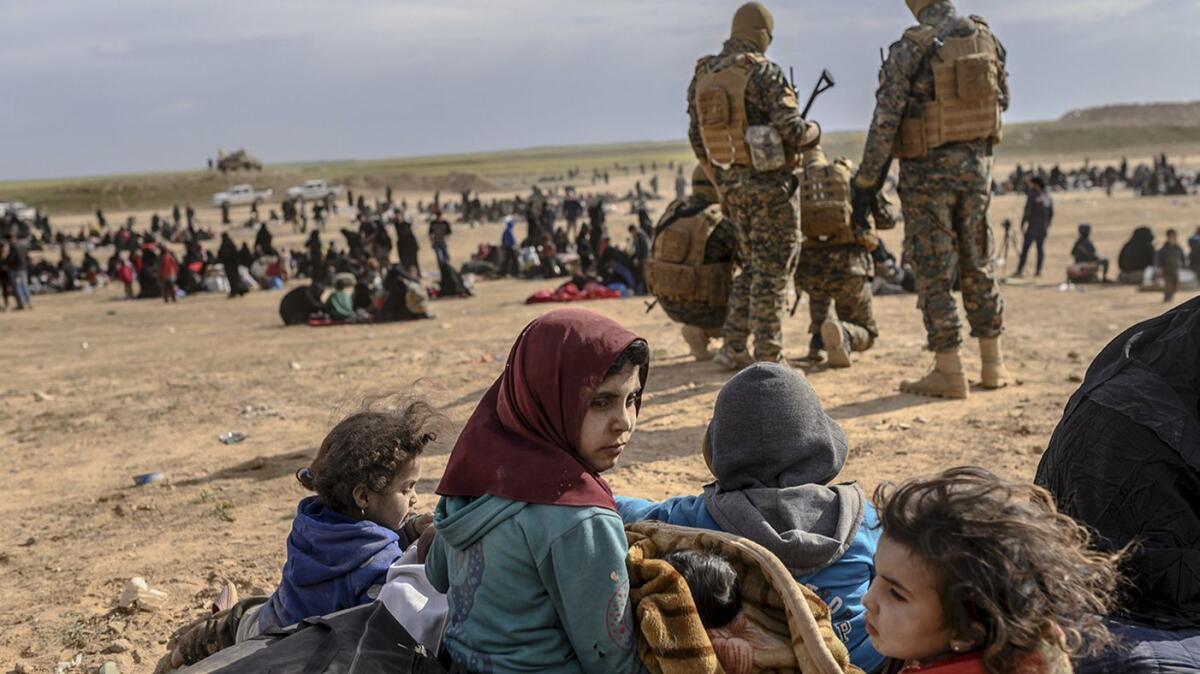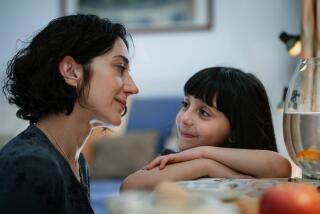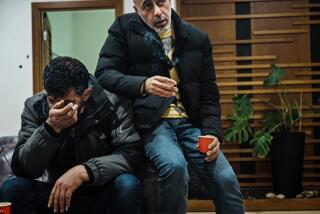For one father, the battle to destroy Islamic State could end up killing his own children

- Share via
Reporting from Irbil, Iraq — Bashirul Shikder paced in his cream-colored hotel room here, his face tightening to hold back tears.
He had traveled thousands of miles from his home near Miami and spent a frustrating week in Irbil trying to score meetings with diplomats, military commanders, militiamen, activists, aid workers, journalists or anyone else who might be able to help him.
Room 202 of the Classy Hotel was the closest Shikder, 38, had gotten to his two children since March 2015, when his wife took them, left Florida and traveled to Syria to join Islamic State.
At the time, the extremist group controlled a sprawling territory encompassing a third of both Syria and Iraq. The self-declared caliphate has since been reduced to a few houses and tents in Baghouz, a dust-swept Syrian village 200 miles southwest of Irbil.
Now U.S.-backed Kurdish and Arab militiamen were closing in on Baghouz.
And somewhere out there were 8-year-old Yusuf and his 4-year-old sister, Zahra.
Life in Florida seemed blessed.
Shikder worked in information technology. His wife, Rashida Abdul Hamid, was a stay-at-home mother. They would go to a spot near the fishing bridge in North Miami Beach from where they could watch the waves, and became regulars at their favorite Arabic restaurant.
Both were U.S. citizens from Bangladesh — her family had moved to Orlando when she was a year old, and he arrived in 2007 after studying in Canada — and both were devout Muslims.
On March 15, 2015, Shikder boarded a plane for what he thought would be “a trip of a lifetime.” He was flying to Saudi Arabia to do umrah, an abbreviated version of the pilgrimage to Mecca required of all Muslims.
Once he arrived, Shikder sent his wife photographs and videos, along with messages asking her about what gifts to bring back for the family. But there was no response.
After nine worry-filled days, he called her parents, who broke the news about his wife and children.
They had left on a flight to Istanbul, Turkey, three hours after him. His wife’s sister Aisha had gone with them. From Turkey, they made their way to the city of Raqqah, then the de facto capital of Islamic State in Syria.
Shikder immediately contacted the FBI, then raced back to Miami.
“It was like the whole sky fell down on me,” he said. “Until Rashida did this, she was my everything. I shared everything with her.”
There was no word of his family until almost a month later, when a strange number appeared on his cellphone. A man with a British accent came on the line, asked for him, and told him his wife and children were now in “Dawlat al Islam” — Islamic State.
The man berated Shikder for not joining them there and threatened that if he didn’t do so in a month his marriage would be annulled and children taken away.
Shikder stalled for time. He said he wanted to come but that he had to take care of his sick mother at home.
About a week later, his wife contacted him on the messaging app Viber.
“We were both crying,” Shikder recalled. “I said ‘Rashida, what did I do to you in this life for you to do this to me?’”
She apologized that everything had happened so fast, he said.
Her attraction to Islamic State was something he would never understand. He begged her to return, but she said her passport had been taken away.
They continued to communicate over the months that followed, but Shikder never felt he could speak freely. He knew Islamic State members were nearby.
“It was very, very difficult,” he said. “Sometimes when we were talking I wanted to be angry, as a husband and as a father to my lovely children…. I wanted to tell her to come back, but I couldn’t say it.”
But after nearly a year and a half, the militants were no longer convinced of his sincerity.
In June 2016, his wife filed Case No. 13020 in Raqqah’s sharia court using her nom de guerre, Umm Yusuf al Amreekiyah, which means “Mother of Yusuf the American woman.”
She wanted her marriage annulled because her husband “lives in the land of infidels, and does not want to emigrate,” according to a court document later obtained by Shikder.
The judge granted the annulment on June 10, 2016.
Abdul Hamid quickly remarried and in 2017 gave birth to a daughter, Safya.
By then, Islamic State was steadily losing territory. Eventually Abdul Hamid and her three children wound up retreating with the militants to eastern Syria.
At least that is what Shikder’s sister-in-law Aisha told him in online messages.
Then early this year, she sent another message: The mother of his children was dead, killed in a shelling or airstrike that had disfigured Yusuf and Zahra.

Over the last few weeks, thousands of families had streamed out of Baghouz to flee the violence. They have emerged wraith-like from the desert, gaunt and covered in dust. They travel to Kurdish internment camps hundreds of miles away.
Many children don’t make it. Since December, according to the United Nations, more than 50 younger than 5 have died en route or shortly after reaching Hol — a camp that shelters more than 50,000 people — and hundreds more have been hospitalized for severe malnutrition and diarrhea.
Shikder spoke to the U.S. consul in Irbil and reached out to the office of Florida Sen. Marco Rubio asking to cross into Syria to look for his children.
“They said it’s not safe, but I said that [Islamic State] is already defeated,” he said. “What does it mean that I can’t search for my own children?”
Last week, Shikder thought his nightmare had finally ended; an aid group told him Yusuf and Zahra had been found. He ran out to shopping centers in Irbil to buy them warm clothes.
But he soon discovered there had been a mix-up with the names.
With Baghouz under assault over the weekend, Shikder managed to contact somebody who was with the militants and was told his children were with them.
He sent messages pleading for the release of all remaining children. But he never heard back.
“I’m just watching TV and seeing all these people, all these children, and they’re coming out with their father and mother,” he said. “My children have no one.”
There was nothing more he could do from Irbil, he concluded. On Sunday, he flew back to Miami.
More to Read
Sign up for Essential California
The most important California stories and recommendations in your inbox every morning.
You may occasionally receive promotional content from the Los Angeles Times.











